What the Chinese Eat for Breakfast
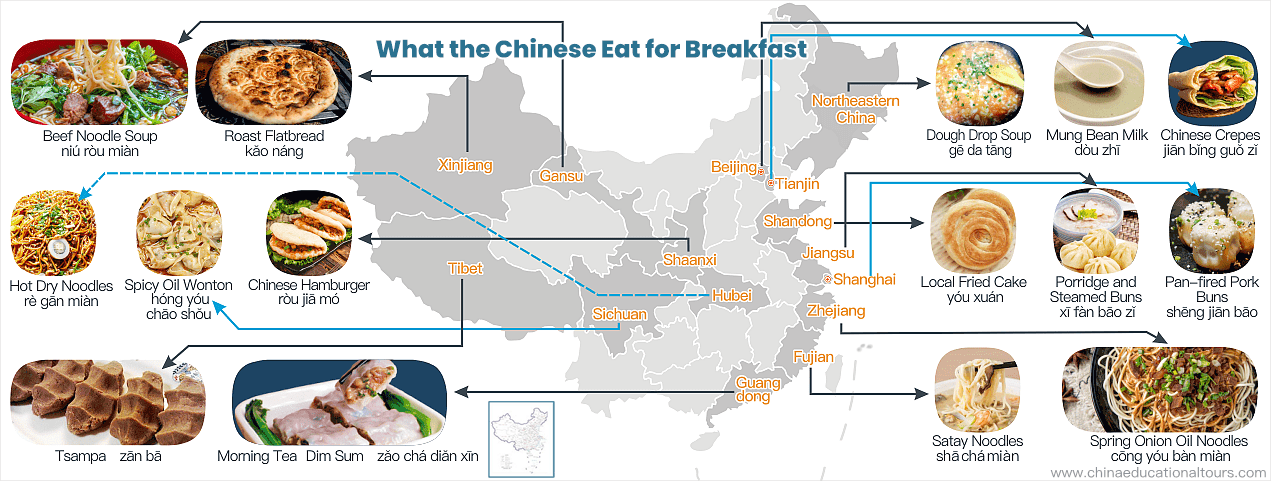
All over the western world people enjoy Chinese food for lunch or dinner. But even the most adventurous tend to look for the food they are comfortable with at home when it comes to breakfast time. If you are staying in a foreigner-friendly hotel in China, they may well be cereal and milk, or eggs on toast, on the breakfast buffet, but wouldn’t it be better to complete your Chinese adventure by going out there to eat a real Chinese breakfast?
How important is breakfast in Chinese culture?
Breakfast holds profound significance in Chinese culture, far beyond simple nutritional intake. Traditionally viewed as the most critical meal of the day, it serves multiple essential functions:
-
Nutritional Perspective:
Provides fundamental energy for daily physical and mental activities
Supports productivity, especially for labor-intensive professions
Delivers essential nutrients through diverse food combinations -
Cultural Significance:
Represents a social ritual, particularly through traditions like 早茶 (morning tea)
Facilitates family and community bonding
Reflects historical agricultural practices and communal dining traditions -
Typical Breakfast Characteristics:
Includes rice, porridge, vegetables, proteins
Emphasizes balanced, nutrient-rich compositions
In essence, breakfast in China is not merely a meal, but a comprehensive cultural experience embodying nutrition, social connection, and historical continuity.
What do Chinese people eat for breakfast?
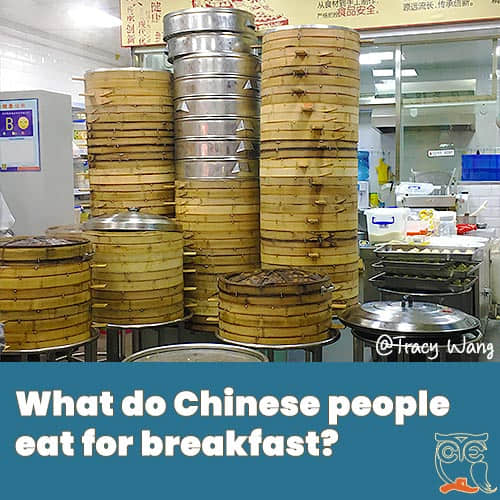
Chinese breakfast culture represents a dynamic culinary ecosystem characterized by remarkable regional diversity, historical depth, and evolving gastronomic preferences.
Regional differences: Breakfast in northern China is mainly wheat, common such as pancakes, noodles, dumplings, buns, fried dough sticks. Breakfast in southern China is mainly made of rice, such as porridge and rice noodles.
Street food: In order to get breakfast more quickly and conveniently, breakfast is often purchased from mobile vendors and breakfast stalls in the market.
Morning tea culture: The signature Cantonese breakfast tradition, in family groups, or with three or five friends to enjoy a delicious dim sum and a leisurely time.
Be more diverse: With global integration, Western breakfast elements are becoming more and more popular among urban young people. A cup of coffee and a sandwich in the morning have become the new favorite of Western breakfast.
Most popular breakfasts in South China
Whether you're a local or a tourist, start your day like a true Southerner. Enjoy these essential breakfast dishes and start a new day with a comforting and delicious meal that will fill you with energy for the day ahead.
Yam Cha | Dim Sum
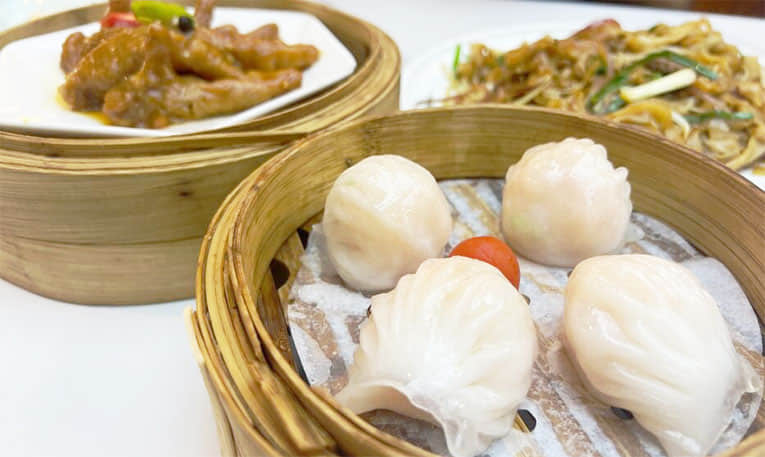
Yam Cha, or Morning Tea and Dim Sum. This Cantonese style breakfast is customarily a leisurely occasion which is enjoyed especially on weekend mornings. Tea (of various interesting flavors such as green, oolong, jasmine, chrysanthemum and so on) is drunk along with a variety of dishes served in steamers or on small plates. These 'dim sum' are from a huge variety of mostly savory little snacks, that may be steamed, deep fried, or boiled, and include rice, noodles, dumplings and buns. Explore further on Dim Sum.
Zongzi
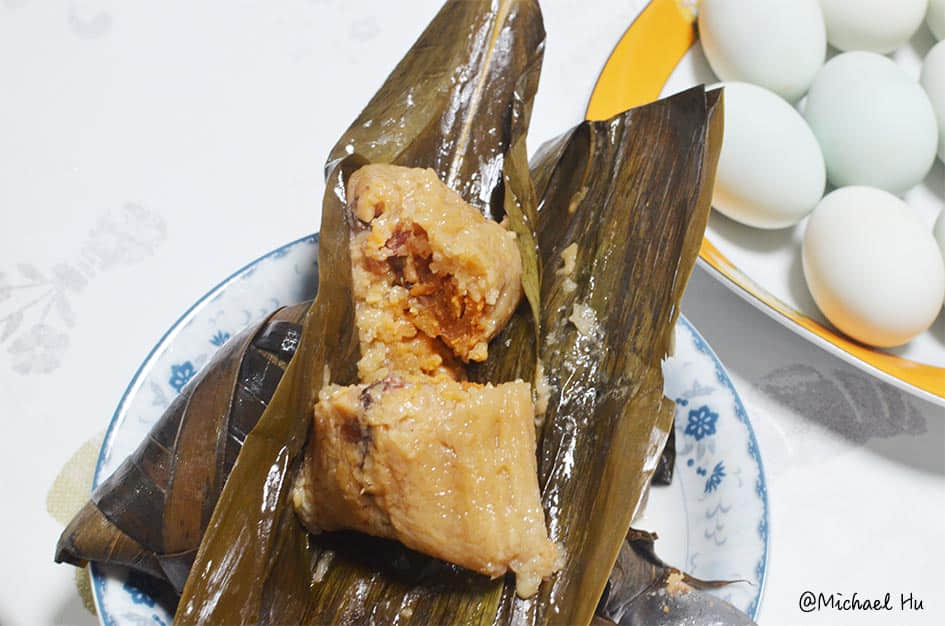
Zongzi is also a popular breakfast dish in China, not just during the Dragon Boat Festival, they vary in shape, size and filling depending on the region. Some are sweet and contain walnuts, dates or bean paste. And the salty one, with ham, pork, salted egg yolk. They're all delicious. You'll like to try them. Continue reading about Zongzi.
Rice Noodles
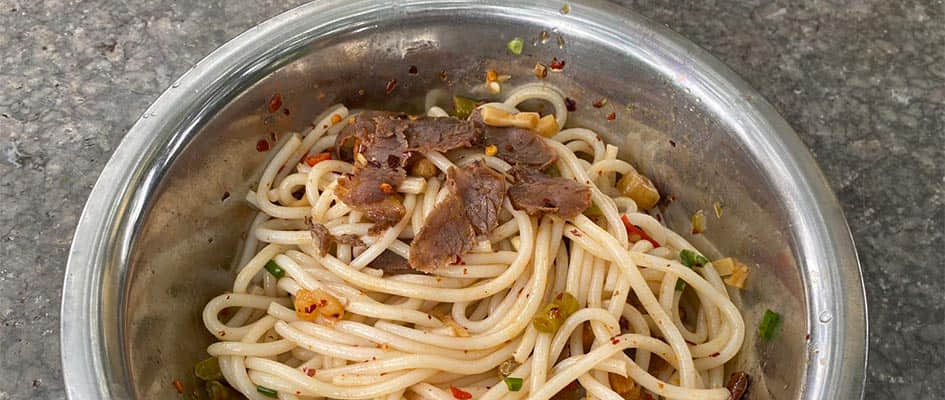
Famous types include gulian rice noodle, hunan rice noodle, hainan rice noodle. Notable subtypes are Liuzhou snail noodles (luosifeng), Nanning Laoyou noodles and Yunnan Mixian.Dig deeper into Top 10 Rice Noodles in China.
Cheung Fun | Chang Fen | Steamed Rice Noodle Rolls
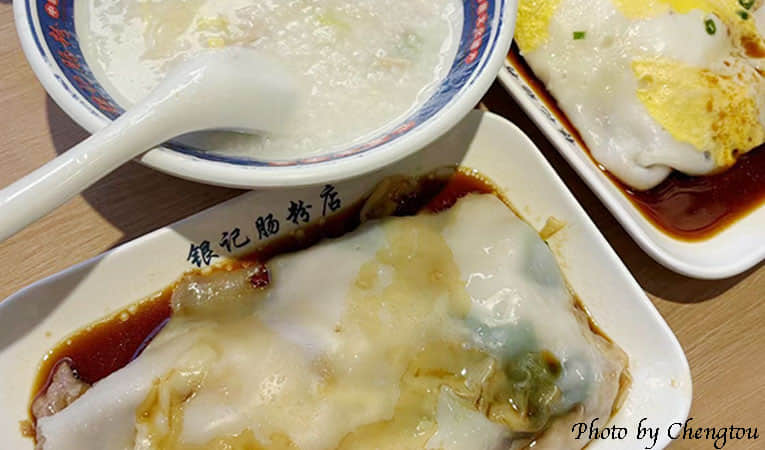
Cheung fun is one of the signature breakfasts of Guangdong. In Guangxi have a lot of fans as well. Cheong fun can be filled with a wide range of fillings, including slices of fish, shrimp, pork, eggs and vegetables.
Soy Milk and Youtiao (Yu Char Kway or Chinese Fried Dough Sticks)
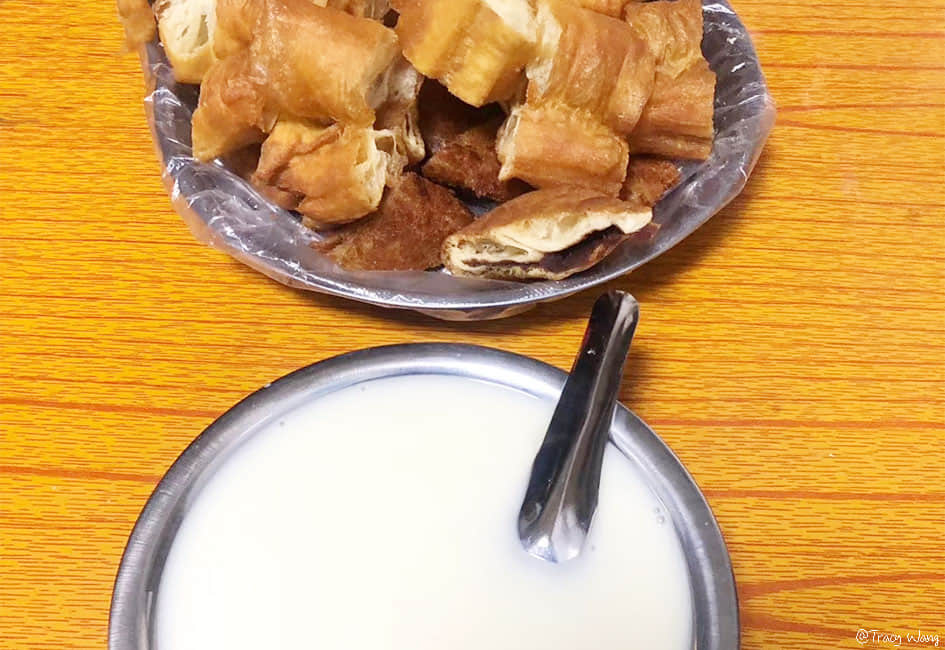
It’s the most traditional breakfast dish, not just adored by Southerners, but also at home in the North. No matter how many times you eat the rich, fragrant soy milk with the crunchy-on-the-outside / fluffy-on-the-inside youtiao, it never seems to lose its delicious flavor.
Tofu Pudding | Tofu hua | Douhua or Doufu Nao
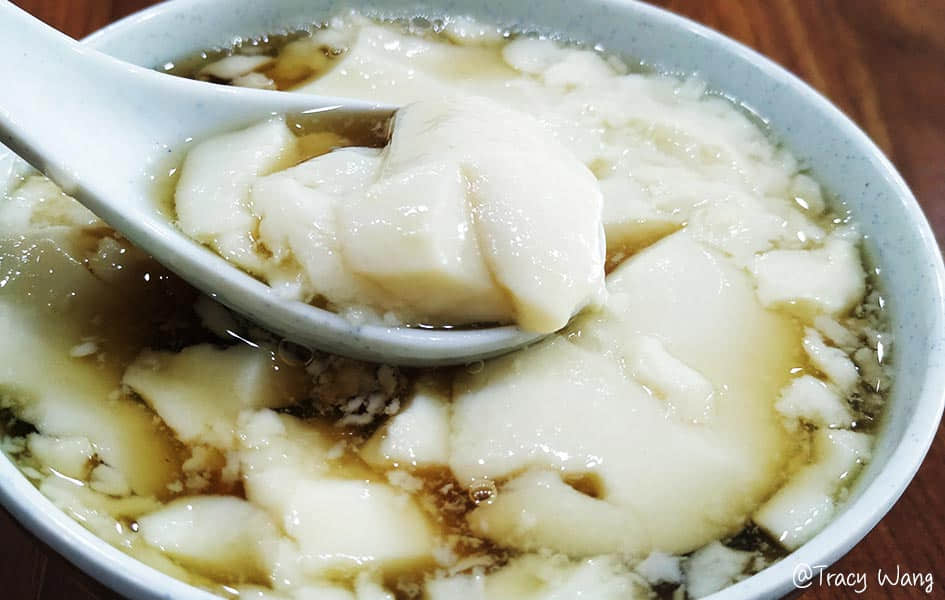
People in the south of China like to have a sweet version of this comforting pudding which they enjoy with ginger and brown sugar syrup. (Elsewhere it is a savory dish.)
Wontons
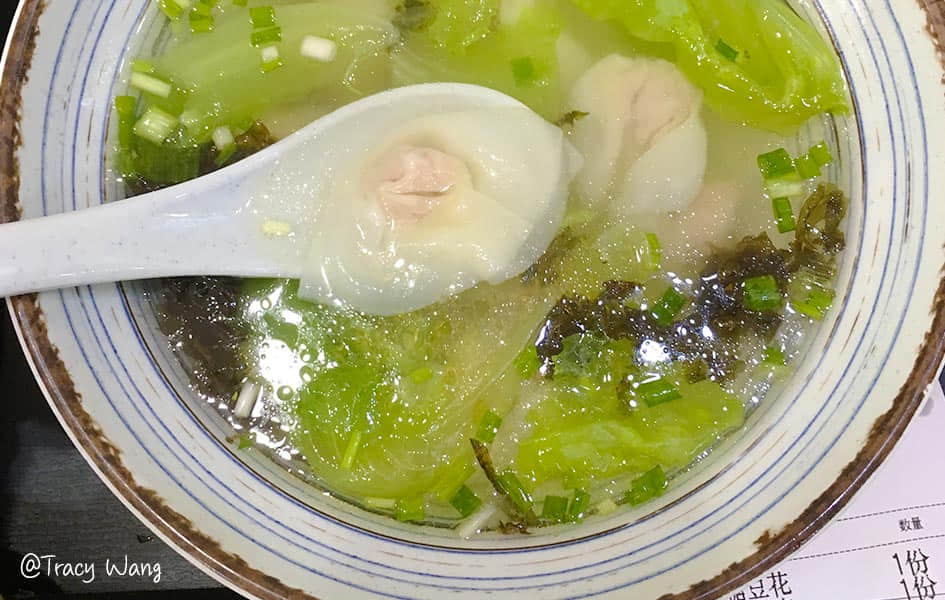
There are two kinds of wontons, big wontons are famous for Shanghai wontons and Sichuan wontons (Chaoshou). The more famous small wontons are Jiangsu small wontons, Anhui small wontons and Fujian small wontons. Wonton wrappers are thinner than dumpling wrappers.
Potstickers | Guotie
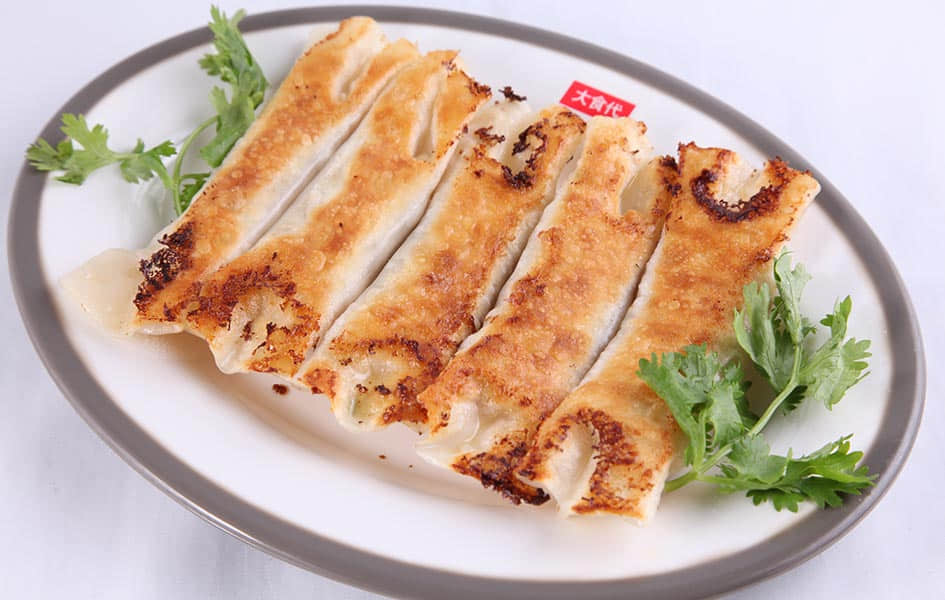
Potstickers are a special snack in the South, famous for their delicious and juicy taste. They are a popular breakfast food in Jiangnan (Jiangsu Province south of the lower reaches of the Yangtze River) because of their thin skin and filling.
Congee | Rice Porridge | Zhou 粥
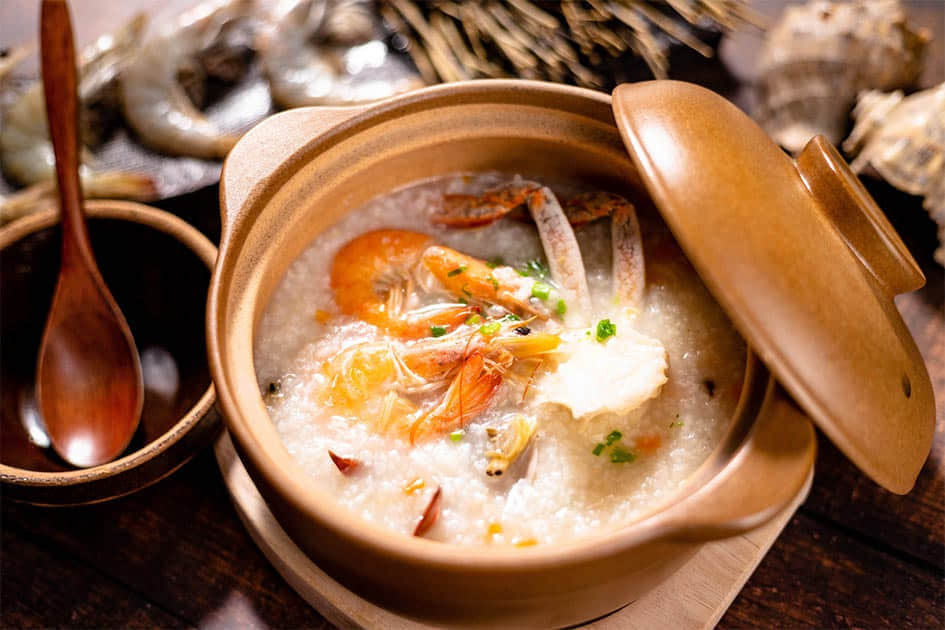
Southern China has taken congee, or rice porridge, and transformed it into a culinary masterpiece. Anything that can be used in cooking can find its way into a Southern-style congee. For example, 'Tingzai zhou' congee brims with the exquisite flavors of seafood, clay pot congee can include a myriad of mixed ingredients. Different variations like century egg and lean meat congee and liver, chicken, or red bean porridge are also common, with multi-grain porridges like mung bean or Eight-Treasure congee adding to the platter of choices.
Porridge in the North, on the other hand, tends to be more simple and light, with styles like sweet potato congee and millet porridge being popular.
And the best part? If you're preparing congee at home, the variety is endless — you can whip up a different, personalized bowl of congee every morning according to your culinary desires.
Most popular breakfasts in North China

Northern Chinese cuisine is generally strong and salty, and the dishes are usually oily and meaty, often flavored with garlic and scallions. Wheat products are especially popular in the north. Here are some of the breakfast you could try in the north of China.
Buns – steamed, and stuffed. These remarkably light, fluffy buns are made with wheat flour, and can be plain or filled with savory meat or vegetables, or with sweet red beans. They are a real comfort food and palatable even for foreigners at breakfast time.
Deep Fried Dough Sticks. Another wheat-based food, these delicious pairs of dough-sticks are commonly enjoyed dipped into a steaming bowl of sweet soymilk. You will find this a very acceptable breakfast, not being too different from food back home.
Rice Porridge, or Congee. Delicious rice porridge, or congee, is often eaten with all sorts of additions such as pickles, peanuts or meat. It is sometimes eaten with fresh pancakes, and is a great start to the day.
Zongzi. In the north, these leaf-wrapped glutinous rice parcels are rectangular and usually contain a sweet filling such as red bean paste, egg yolk, or lotus seeds. You don’t want to miss out on tasting these delicious treats.
Tofu Pudding. In the north, this soft tofu pudding is a salty meal, served with soy sauce and possibly meat.
Wheat noodles. A big bowlful of hot, fresh, flavorful wheat noodles is a very popular breakfast that is simple and satisfying.
Pancakes with Eggs. The pancakes are usually wrapped around a deep-fried crispy dough slice and topped with fried egg, finely chopped mustard pickles, scallions, coriander, and a spicy sauce.
How much does breakfast cost in China?
Price of breakfast in China is region-based. In North, One Steamed bun or Jianbing costs approximately 5–10 Yuan (which is less than 2 USD.) In the South, particularly in Shanghai and Guangzhou, it costs generally from 10-20 Yuan (2-3 USD).
Street vendor food costs around 10-20 Yuan (1.50-3 USD) for a bowl of noodles, and 30-50 Yuan (4.50-7.50 USD) at nicer restaurants. Prices I find tend to be more higher in big cities than smaller towns.
These prices are averages and can vary by location.
How early do Chinese people get up?
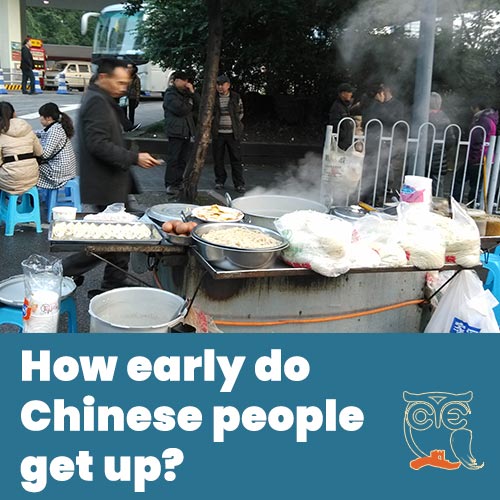
The exact time that Chinese people wake up can vary depending on their occupation, lifestyle, and personal preferences. Here are some general trends for weekday and weekend wake-up times for different groups:
| Group | Weekday Wake-up Time | Weekend Wake-up Time |
|---|---|---|
| Students | 6:30 - 7:30 AM | 8:00 - 10:00 AM |
| Workers | 5:00 - 6:00 AM (Urban Areas) | 7:00 - 9:00 AM |
| Breakfast Vendors | 3:00 - 5:00 AM | 3:00 - 5:00 AM |
Where do Chinese people eat breakfast?
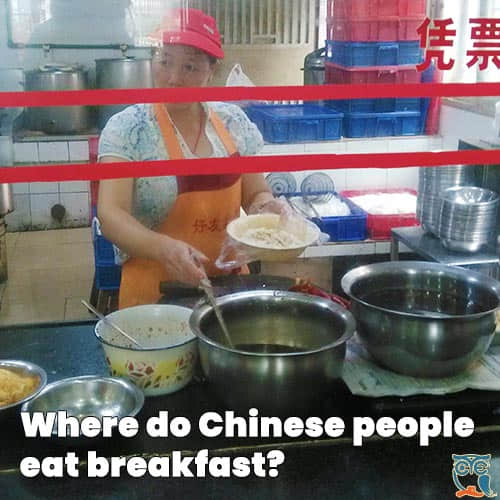
In China, people have breakfast in different places according to their location, lifestyle, and personal preferences. Here below are some common breakfast places for Chinese people:
Street Vendors: Street vendors often sell traditional breakfast items such as steamed buns, fried dough sticks, soy milk, Chinese pancakes, and porridge. For those who work in big cities, it's a very common move to buy a Chinese pancake from a store on the way to school or work.
Cafés: Cafés that specifically offer breakfast dishes are very popular in urban areas. For urban workers, a cup of coffee and a sandwich has become a fast breakfast.
Chinese Restaurants & Morning Markets: Breakfast foods are mostly rice noodles, noodlesdy, dumplings, and other great mornig markets in Chinese restaurants. All sorts of fresh fruits and vegetables as well as various breakfast goodies can be found in morning markets. For example, Harbin' s Hongjie Morning Market is very famous. It is also an inseparable travel experience to go to the morning market at 7 o'clock to have a steaming hot local specialty breakfast.
Fast-food Chains: McDonald's and KFC, among others, have extended their menus for Chinese and Western breakfast foods in their branches.
At Home: Many people also like to make a simple breakfast at home. Nowadays, most electrical appliances have a pre-set function, so you don't have to get up very early. You can enjoy a healthy five-grain porridge cooked at home in winter mornings.
Breakfast at Workplaces: Certain workplaces (especially businesses with large employee bases) may offer a breakfast spread as part of their employee benefits. These can be as simple as breakfast offerings such as milk and bread, or heartier options like rice porridge and dumplings.
School Canteens: In China, many schools (including kindergartens,high schools and universities) provide canteens providing breakfast for students before classes. The breakfasts often consist of hot foods like rice, noodles and vegetables.
Bakeries: Moving up the list in recent years, bakeries are on the rise in China, especially in big cities. They typically have a selection of breakfast pastries, cakes and bread.
Small shops: Small shops are a dime a dozen in China and typically sell quick pre-packaged breakfast items like sandwiches, yogurt, milk and fruit.
Takeout: With the rise of takeout services in China, many people choose to have their breakfast delivered to their homes or workplaces. Popular takeout platforms in China include Meituan and Ele.me.
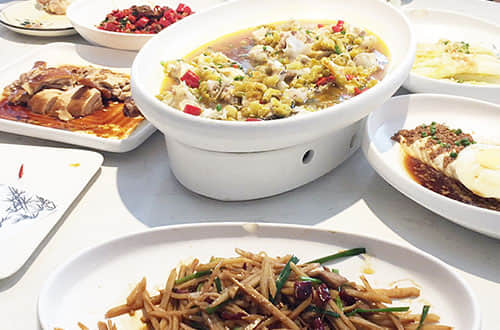 What the Chinese Eat for Lunch
What the Chinese Eat for Lunch 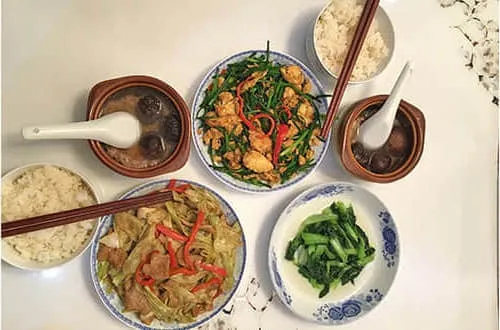 What Chinese Eat for Dinner
What Chinese Eat for Dinner 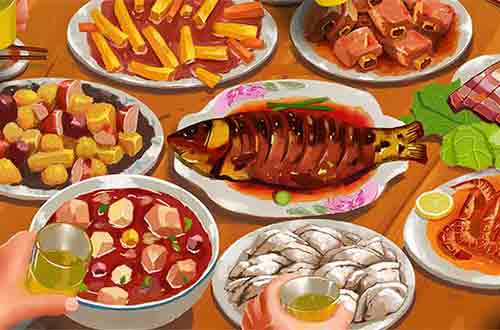 Reunion Dinner: Nian Ye Fan
Reunion Dinner: Nian Ye Fan 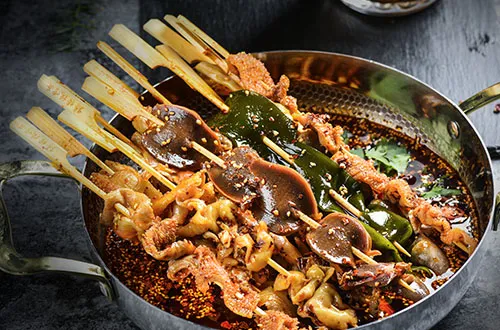 Mouth-Watering Food Tour
Mouth-Watering Food Tour